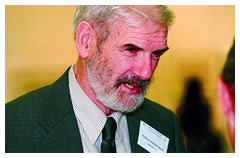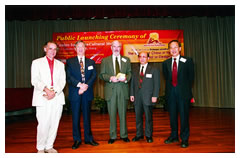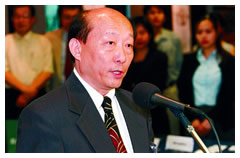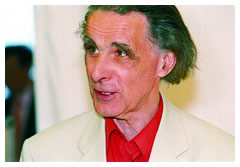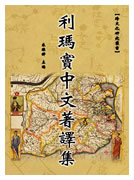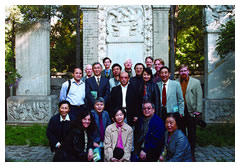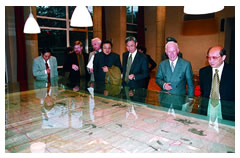A new centre trains its eyes on Matteo Ricci, cross-cultural studies
CityU's Centre for Cross-Cultural Studies (CCS), two years in preparation, finally made its official debut on 12 October. World-renowned sinologist and author of modern Chinese studies, Jonathan Spence, Sterling Professor of History at Yale University, delivered a public lecture on "The Image of China in the West: Accident or Design?"to a packed audience at the Wei Hing Theatre.
The public launch of CCS was followed by an international conference on Matteo Ricci, with more than 50 scholars from Mainland, Taiwan, Hong Kong, North America and Europe attending. Professor Sir Geoffrey Lloyd of the University of Cambridge; delivered a keynote speech on Ricci and the problem of cross-cultural interpretation. Sir Geoffrey argued that there was more compatibility between China and the West than has previously been thought and that Ricci, in his zeal to convert the Chinese to Christianity, did not properly analyze Chinese culture at that time.
The three-day conference at CityU included such diverse topics as Jesuit interpretations of Chinese classics, and the legacy of Ricci and the rise of modern science in China. CityU Press also unveiled a collection of selected Matteo Ricci writings and translations in Chinese to commemorate
the occasion.The second part of the conference, attended by a dozen delegates, took place in Beijing on 16 and 17 October. Highlights of the programme included a viewing of a rare copy of Matteo Ricci's hand-drawn map (circa AD 1608) on display in the art gallery of the Italian Embassy and a visit to Ricci's tomb and the Southern Cathedral in the heart of the city.The highlight of the short trip was a three-hour seminar on cultural interactions between China and the West. Held at Peking
University's new 100th Anniversary Hall, the academic forum was co-organized by City University's CCS, Peking University's Institute of Comparative Literature and Culture in Beijing. It had attracted more than 40 scholars from the mainland, Hong Kong, Taiwan, France, the United States and Canada. CityU's group was led by Professor Zhang Longxi and members included the President and Professor Cheng Pei-kai, Director of Chinese Civilisation Centre.